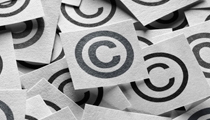This website uses cookies so that we can provide you with the best user experience possible. Cookie information is stored in your browser and performs functions such as recognising you when you return to our website and helping our team to understand which sections of the website you find most interesting and useful.
Business News Education & Events The Great Escape 2014
Ten questions about music rights in 2014, all to be answered at The Great Escape this May
By CMU Editorial | Published on Tuesday 1 April 2014
One of the insight strands being presented by CMU Insights at The Great Escape this year is Maximising Music Rights, supported by PPL and PRS For Music.
This will be a complete and concise update on all and everything you need to know in 2014 about music rights – by which we mean the copyrights that exist in lyrics, musical score and sound recordings – all squeezed into a neat three hours. Whether you are an artist, songwriter, producer, manager, label, publisher, distributor or digital service provider, you are in the copyright business, while promoters, broadcasters and ad agencies are all customers of music rights. And whichever of those you may be, you’ll find this strand hugely valuable. And no previous copyright knowledge is required.
The spotlight will be thrown on neighbouring rights and anti-piracy tools, while Hove MP and David Cameron’s Intellectual Property Advisor Mike Weatherley will be discussing the political dimension of all things copyright. But to kick things off, CMU Business Editor and Insights Director Chris Cooke will be providing a speedy overview of all the key music rights issues by answering all of the following ten questions in a mere 40 minutes.
1. How much money do we make from music rights?
The ‘we’ in that question being the music community at large. The revenue stats you most commonly hear coming out of the music industry actually relate to just recorded music, but what about the bigger picture. We’ll be sharing figures from across the music rights sector, so publishing (lyrics and score) as well as recordings income. And for all the hype in recent years about streaming music and sync deals, what music right revenue streams are really delivering right now?
2. How are we licensing digital services?
What digital services do we licence as one through the collective licensing system, and which need to do direct deals with labels and publishers? Well, it varies, depending on the kind of music right, and the territory. And the year. Oh why can’t we make digital licensing simpler? Well, we can’t do that in a 40 minute presentation, but we can explain the current situation in a nice big diagram on a nice big screen. Come and get your head around it all.
3. How are we licensing global services?
Most digital services operate in multiple territories, and some aspire to be available in every single country. Which has created challenges for the copyright system, especially in collective licensing where everything previously happened on a country-by-country basis. How are we dealing with multi-territory licensing. Well, we’ll tell you. This will require a very big diagram. But we’ve got a big screen.
4. How do licensees know who owns what music rights?
Ah, data. What’s up with the Global Repertoire Database? What exactly is the Broadcast WAV file and how will it help? And what are we doing with metadata? Give us four minutes and we’ll tell you.
5. Are we doing anything to simplify music licensing?
Well, we’re doing a bit. Come and find out more, and hear about the One Music project in New Zealand, possibly a pilot for how collective licensing at least could be simplified for users of music.
6. How is music rights income shared between artists and labels?
Aha, so this is an increasingly contentious point isn’t it? Of course, beyond neighbouring rights, what royalties a label pays a featured artist depends on their record deal, but what are the industry standard splits for CD, download, streaming and other revenues? And why is all this being debated? We’ll have the stats and the bullet point arguments.
7. How is music rights income shared between labels and publishers?
A contentious point for future years, this one. How is the digital pound split between the different rights owners? And will this change in the future? We outline the basics of a forthcoming debate.
8. How long does copyright last?
Well, for recording rights owners the answer is “longer than at the last Great Escape”. Find out how the longer sound recording copyright in Europe is working, brush up on your copyright terms in general, and we’ll explain why those unreleased Beatles tracks from 1963 slipped out last December.
9. When can people legally use our music without a licence?
Exemptions, exemptions. This is changing in the UK right as we speak. Find out how.
10. Can copyright adapt to the digital world?
“Copyright is an archaic concept that can’t work in the digital age”, it’s often been said in the last decade as the content industries have tackled the opportunities and threats thrown up by the digital age. But copyright is just as relevant now as it ever has been, and for all the challenges and weaknesses, copyright can and will evolve with the changing world. And if you’re not convinced, we’ll convince you. Promise.
So there you go. Get up to speed on all things music rights at The Great Escape from 2-5pm on Thursday 8 May. All you need now is your delegates pass, which you can buy here.






